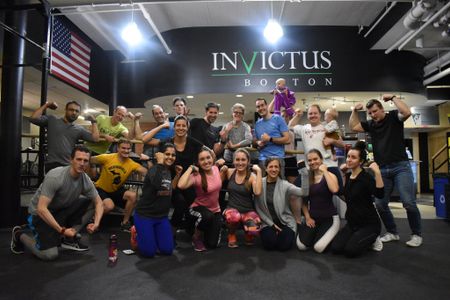Resident Quality of Life
We recognize that surgical residency is a challenging time. At Boston Medical Center, several programs are in place to support residents’ academic, emotional, and physical well-being.
Faculty Mentorship
Mentorship is a critical component of success in surgical residency. Every incoming intern is paired with a faculty mentor as well as a resident peer mentor. The faculty mentors meet with each resident mentee at least twice a year to provide guidance and help ensure the resident reaches their personal and professional goals. As a resident identifies academic and subspecialty fields of interest, mentorship relationships may change to best suit the resident’s needs.
Additionally, the Surgical Education Office facilitates dedicated mentorship rotations. Categorical interns have the opportunity to spend one rotation conducting research with a faculty mentor. Senior residents have the opportunity to participate in an apprenticeship rotation with a faculty mentor that combines clinical work as well as research.
Social Wellness Committee
Comprised of resident representatives from every training level and faculty advisors, the Social Wellness Committee’s principal objective is to improve departmental communication and morale and enhance the surgical residency recruitment process. In addition, the group serves as a support system for residents and faculty during major life events, including serious illness, death of a family member, or birth of a child. The Social Wellness Committee organizes informal social gatherings and larger events for residents, faculty, and staff. Additionally, several programs have been created to support residents, their families, and students interested in joining the training program at Boston Medical Center.
- Surgery Kids – A program designed to connect those with families and young children.
- WOW – A women-in-surgery group designed to provide a social, professional, and emotional outlet for women within the department.
- Recruitment – To support the recruitment process, the Social Wellness Committee spearheads resident participation in pre-interview dinners, campus tours, and post-interview candidate evaluations.
Resilience Sessions
A licensed clinical social worker (LICSW) facilitates monthly resilience sessions with all residents. These sessions aim to promote resilience by building team cohesion and teach concrete coping skills for stressful situations. Themes addressed during these sessions are:
- Stress response and burnout
- Stress response activation – what it looks like and how to address it
- Spectrum of negative interpersonal communication 1
- Spectrum of negative interpersonal communication 2
- Cognitive reframing
- Burnout revisited
- Rethinking drinking
- Depression/anxiety– when to get help
- Death
- Distress tolerance – witnessing human suffering
- Moral distress
- Open discussion
Personal Days
To allow residents time to take care of their own health, residents are granted two personal days that they may use to go to physician or dentist appointments.
Intern orientation includes time set aside for primary care appointments.
